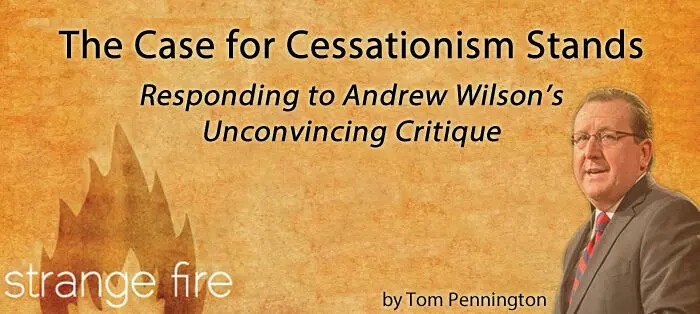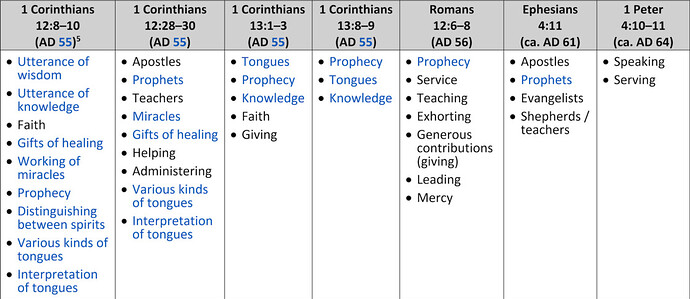Uno momento @Lynne67
In 1 Corinthians 14:2–19, Paul provides his most detailed teaching on the nature, purpose, and limits of glōssolalia (speaking in tongues), and his remarks should be exegeted in both their immediate literary context and their broader theological and spiritual framework. Paul’s Greek here is loaded with key terms that shed light on his pastoral concern for intelligibility, edification, and spiritual order in corporate worship. Let us first examine the crucial Greek words and verbs associated with tongues, then proceed to a theological and exegetical unpacking of the passage in its rhetorical structure and intent, with particular emphasis on “heavenly” and “unknown” tongues.
I. KEY GREEK TERMS & VERBS ON GLOSSOLALIA
γλῶσσα (glōssa) — “tongue, language”
Appears repeatedly in this passage (vv. 2, 4, 5, 6, 9, 13, 14, 18, 19)
Sometimes refers to known human languages (e.g., Acts 2:4–11), but in this Corinthian context, often to speech unintelligible to hearers, either unknown human languages or spiritual utterance.
λαλέω (laleō) — “to speak”
Used constantly in reference to the act of speaking in tongues or prophecy (vv. 2, 3, 5, 6, 9, 11, 18, 19)
Not the word for formal preaching (kēryssō) but everyday speaking, here in ecstatic or spiritual expression.
πνεῦμα (pneuma) — “spirit, Spirit”
In verse 2: “ἐν πνεύματι λαλεῖ μυστήρια” (“in spirit he speaks mysteries”)
Could refer to the human spirit under the Spirit’s influence or the Holy Spirit directly ambiguous in Greek but spiritually loaded.
ἀγνώστῳ (agnōstō) — “unknown”
Not in the Greek manuscripts, but inserted in the KJV italicized to show it’s not original.
This means “unknown tongue” is an interpretive gloss by the KJV, not a translation of a Greek word; Paul simply says “tongue” (glōssa), without the adjective.
οἰκοδομέω (oikodomeō) — “to build up, edify”
v. 4: “He that speaketh in a tongue edifies himself”
v. 5: Prophecy edifies the church, crucial term in Paul’s concern for corporate usefulness.
μυστήριον (mystērion) — “mystery, hidden truth”
v. 2: “he speaks mysteries in the Spirit” (μυστήρια λαλεῖ ἐν πνεύματι)
Refers not to secret codes but hidden truths inaccessible without divine revelation.
νοῦς (nous) — “mind, understanding”
v. 14–15: “my understanding is unfruitful” -reveals the tension between spiritual experience and cognitive comprehension.
εὐχαριστέω (eucharisteō) — “to give thanks”
v. 17: “you give thanks well” - the tongue-speaker may truly be worshiping, but no one else is built up.
II. EXEGETICAL FLOW OF THE TEXT
Verse 2 — “He that speaks in a tongue speaks not to men but to God…”
Paul opens with a startling contrast: tongue-speech is vertical, not horizontal. The tongue-speaker utters mysteries, Greek μυστήρια, which are hidden spiritual realities unintelligible without interpretation. He uses ἐν πνεύματι λαλεῖ, literally “he speaks in the spirit”, which can mean his own spirit under ecstatic control or the Holy Spirit moving through him (Rom. 8:26 echoes this inward Spirit-led communication). The speech bypasses human understanding, including the speaker’s own (v. 14) making it inaccessible unless interpreted.
Verse 3–5 — “But he that prophesies speaks unto men…”
In contrast, prophecy is intelligible and corporate, it edifies (οἰκοδομή), exhorts (παράκλησις), and comforts (παραμυθία). Paul is not denigrating tongues per se; he says, “I wish you all spoke in tongues” (v. 5), using the Greek verb θέλω in the optative sense of general desire. But the superiority of prophecy lies in its church-edifying capacity.
The conditional clause, “unless he interpret,” shows tongues are not invalid, but useless to the congregation unless accompanied by interpretation.
Verse 6–9 — “What shall I profit you… unless I speak by revelation?”
Paul transitions to illustrative analogies: speech, like music or military calls, is meaningless unless it has discernible content. He repeats the Greek φθόγγος (sound) and διάστασις (distinction), noting that without cognitive clarity, the speech is “into the air” an empty utterance, not a spiritual blessing.
Verse 10–12 — “There are… many kinds of voices in the world”
Paul acknowledges the diversity of glōssai, likely referencing human languages, and affirms that each has meaning (ἄφωνος οὐδέν ἐστιν — “none is without sound/signification”). Yet again, the stress is not on the authenticity of tongues but their edificational value. Speaking in tongues without understanding makes one a βάρβαρος - a foreigner or unintelligible speaker, even in a spiritual gathering.
III. “HEAVENLY” AND “UNKNOWN” TONGUES?
“Unknown tongues” is a KJV interpolation, Paul never uses ἄγνωστος in this chapter. All tongues are “unknown” only in the sense that no one present understands them.
IV. THEOLOGICAL CENTER: THE CROSS, THE CHURCH, AND THE WORD
At the heart of this passage is not a fascination with spiritual gifts but the primacy of edification through intelligible proclamation. Tongues may express vertical communion, but the Word builds the body. The cross of Christ, the locus of God’s revealed mystery (1 Cor 1:18–25), demands a message that can be heard, received, and understood. Anything less, even if it be ecstatic, cannot substitute for clear gospel proclamation. Thus, Paul’s theology of tongues is shaped not by ecstatic spirituality but by cruciform ecclesiology: everything must serve the upbuilding of Christ’s body.
J.


